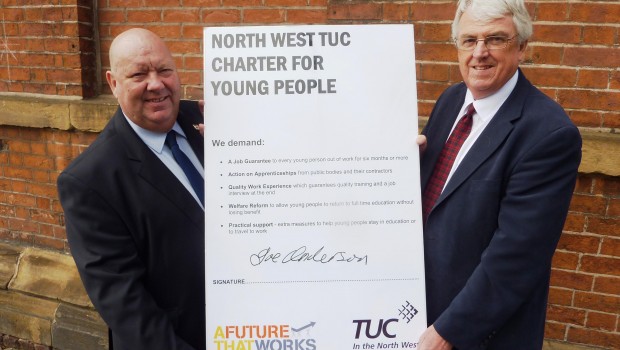
There is hope for many 16-17 year old teens as they could get the chance to come out of unemployment in a new £2.7m scheme which has been launched today.
The scheme aims to fund employers to take on young people who are not in employment or education, these youths are known as ‘neets’.
The Youth Contract Apprenticeship Business Grant Initiative offers a subsidy of £3,500 to the employers willing to take on these youths. The funding is for six months of a 12-month apprenticeship and covers the cost of the national minimum wage for apprenticeships, which is currently £3.86 per hour.
It is predicted that over 100 young people will benefit from the initiative. Councillor Nick Small, Liverpool City Council cabinet member for employment, enterprise and skills told JMU Journalism: “It is a fact that those in the 16-20 age range that are unemployed are more likely to stay unemployed throughout their lives. If we can get more apprenticeships we can get more people off long-term benefits.
“We want to create approximately 150 apprenticeships which will start in the New Year. Around 800 16-17 year-olds in the city are not in employment, education or training and we pledged everyone will be offered something.”
Latest figures show that there are around 1,800 youths aged 16-19 classed as ‘neets’ in Liverpool. A helpline service will be launched and staff will be visiting schools on exam results day and recruitment fairs.
The project is aimed at dealing with the issue of businesses being reluctant to employ young people who lack any work experience or do not have the relevant qualifications to work in today’s highly competitive jobs market.
The Mayor of Liverpool, Joe Anderson said: “Tackling youth unemployment is one of my priorities. We need to make sure every young person gets the chance to compete for a job and develop relevant skills and experience.
“This scheme is an important part of my commitment to making sure every young person gets the chance of an apprenticeship.”
Businesses are offering employment, and emphasis will be given to employers who fill recognised skills gaps or priority areas such as tourism, the creative sector, digital, media, financial and professional services.
Councilor Nick Small added: “We have to encourage employers to look beyond this and harness the raw potential that exists among many of our teenagers. It is absolutely vital we don’t end up with a lost generation of teenagers who aren’t given the opportunity to achieve their potential.”

